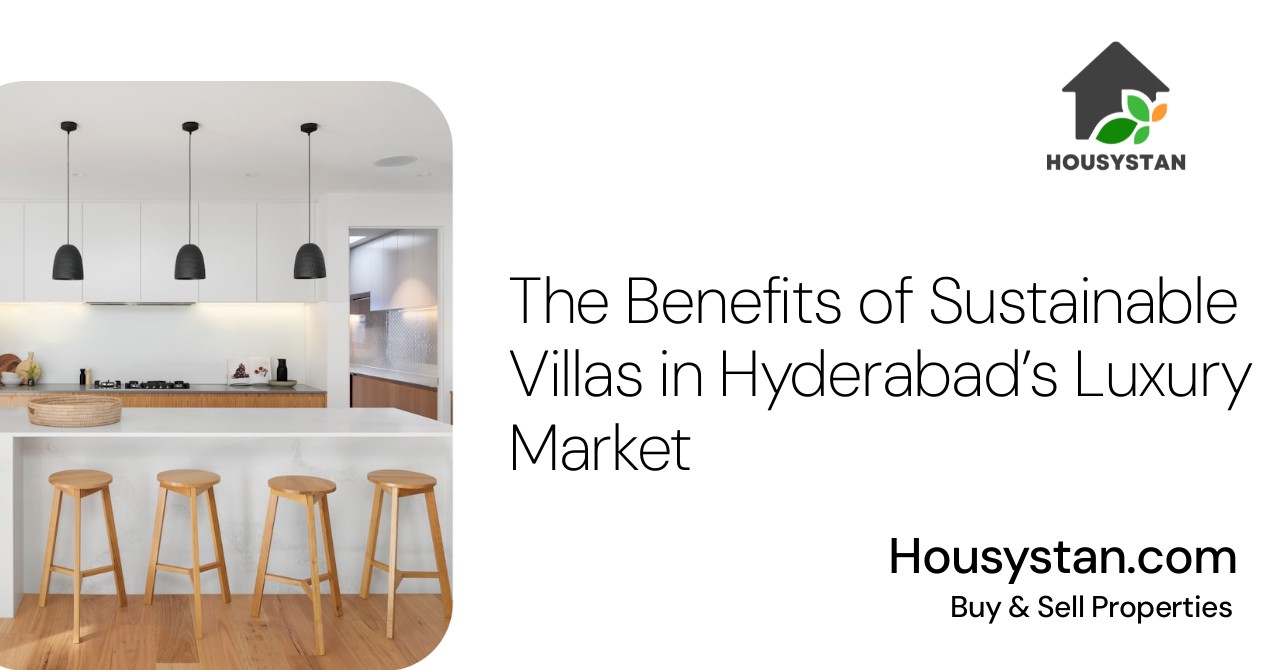The Benefits of Sustainable Villas in Hyderabad’s Luxury Market
Read latest blogs and articles from Housystan

The Information mentioned here was last updated on:
29/1/2026Hyderabad’s luxury real estate market is evolving rapidly, with a growing demand for sustainable villas that blend opulence with environmental responsibility. Nestled in the heart of Telangana, Hyderabad has established itself as a premier destination for upscale living, attracting discerning homeowners who value both comfort and sustainability. Investing in eco-friendly villas in Hyderabad not only enhances lifestyle quality but also contributes to the city’s green future.
Sustainable villas in Hyderabad are designed with energy efficiency and resource conservation in mind. These residences often incorporate solar panels, rainwater harvesting systems, and advanced insulation techniques that reduce energy consumption. By utilizing renewable energy sources and minimizing waste, homeowners can lower utility bills while reducing their carbon footprint. The use of locally sourced, non-toxic building materials ensures healthier indoor environments and supports regional industries, further boosting Hyderabad’s economy.
Another advantage of choosing sustainable villas in Hyderabad is the enhanced property value. As environmental awareness grows among buyers, green homes command higher resale values and attract a broader pool of potential investors. Luxury sustainable villas often feature open layouts, abundant natural light, and scenic landscaping with native plant species, creating a serene and inviting atmosphere. These design elements not only promote well-being but also optimize ventilation and temperature control, providing year-round comfort in Hyderabad’s unique climate.
- Verified Tenants/Buyers
- Unlimited Property Listing
- Zero subscription/charges fee
Residents of eco-friendly villas also enjoy access to exclusive amenities such as organic gardens, green rooftops, and community spaces designed for leisure and recreation. Developers in Hyderabad are increasingly integrating smart technology for energy management, security, and home automation, offering residents unmatched convenience and peace of mind. Proximity to tech hubs, premier schools, and world-class healthcare facilities further enhances the appeal of sustainable villas in Hyderabad’s most sought-after neighborhoods.
Choosing a sustainable villa in Hyderabad signifies a commitment to future generations while enjoying the pinnacle of luxury living. With the city emerging as a leader in eco-conscious development, these homes represent a wise investment for those seeking elegance, innovation, and environmental stewardship in one of India’s most dynamic urban landscapes.